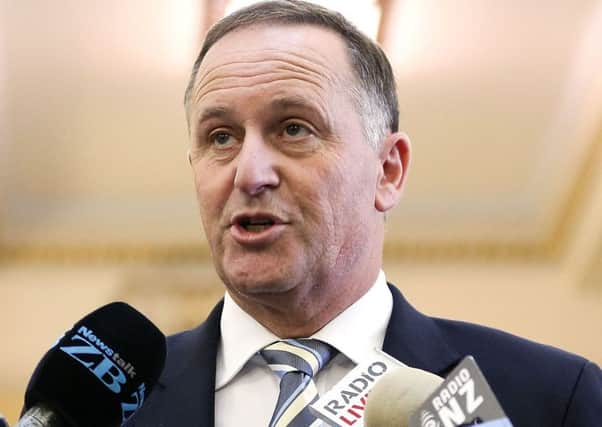New Zealanders no longer keen to move to Australia


But with Australia’s economy stumbling and New Zealand’s improving, the trend has begun to reverse.
New Zealand figures released yesterday show that in April, for the first time in 24 years, 100 more people moved east from Australia to New Zealand than in the opposite direction.
Advertisement
Hide AdAdvertisement
Hide AdThe trend has been emerging for some time. Two years ago, a net 34,000 New Zealanders moved to Australia. That fell to 11,000 last year and to 1,900 in the most recent data for this year.
An agreement between Australia and New Zealand allows citizens of both nations to live and work in either country.
The gain in migrant arrivals was driven by India, with a net gain of 12,200 people in the year through April, followed by 7,800 from China, 4,600 from the UK and 4,000 from the Philippines.
Satish Ranchhod, a senior economist with Westpac Banking Corp New Zealand said: “We expect that net immigration will remain strong over the coming year, approaching a net inflow of 60,000.
“The weak Australian economy is keeping New Zealanders at home. At the same time, New Zealand’s strong economic outlook is continuing to draw in foreign workers in historically very large numbers.”
Still, Mr Ranchhod noted the monthly increase in net immigration appeared to have stalled, with net immigration falling to a seasonally adjusted 4,740 in April from 4,990 in March as the arrival of non-New Zealand citizens eased off.
In New Zealand, the loss of its people over decades to its larger neighbour has proved a political sore point. In 2008, when current prime minister John Key was leader of the opposition, he stood in an empty sports stadium in Wellington to illustrate the thousands of people who were leaving each year and vowed to turn that around.
Robert Muldoon, who was prime minister in the 1970s and 1980s, once quipped that the exodus raised the average IQ of both countries.
Advertisement
Hide AdAdvertisement
Hide AdBut now, the turnaround may pose new political challenges. The figures released yesterday show record annual immigration of 57,000 people to New Zealand, which added more than 1 per cent to the population of 4.5 million. Many people believe immigration is helping fuel skyrocketing home prices in the largest city, Auckland.
Australia’s economy has been struggling after the price of iron ore, its most lucrative export, slumped due to a slowdown in China’s economy. Still, Australia’s debt level remains low compared with most countries and its standard of living higher than in New Zealand.
And in recent months Australia has seen some of its highest unemployment rates in the past decade, and some project that the rate will hit 7 per cent by the end of the year.
Meanwhile, New Zealand’s government yesterday blamed low inflation for a failure to deliver a promised budget surplus this year but said it is yet on target to be in the black next year.
The country hoped to become one of the first developed nations to return to a surplus following the 2008 global financial crisis. That would allow it to begin repaying debt.
But when Finance Minister Bill English delivered his annual budget yesterday, the planned surplus had evaporated into a projected deficit of NZ $684 million for the year ending June. His forecasts indicate a tiny surplus next year, increasing to a NZ$3.6 billion surplus by 2019.
Credit rating agency Standard & Poor’s said the budget would not have any immediate impact on New Zealand’s AA sovereign credit rating.